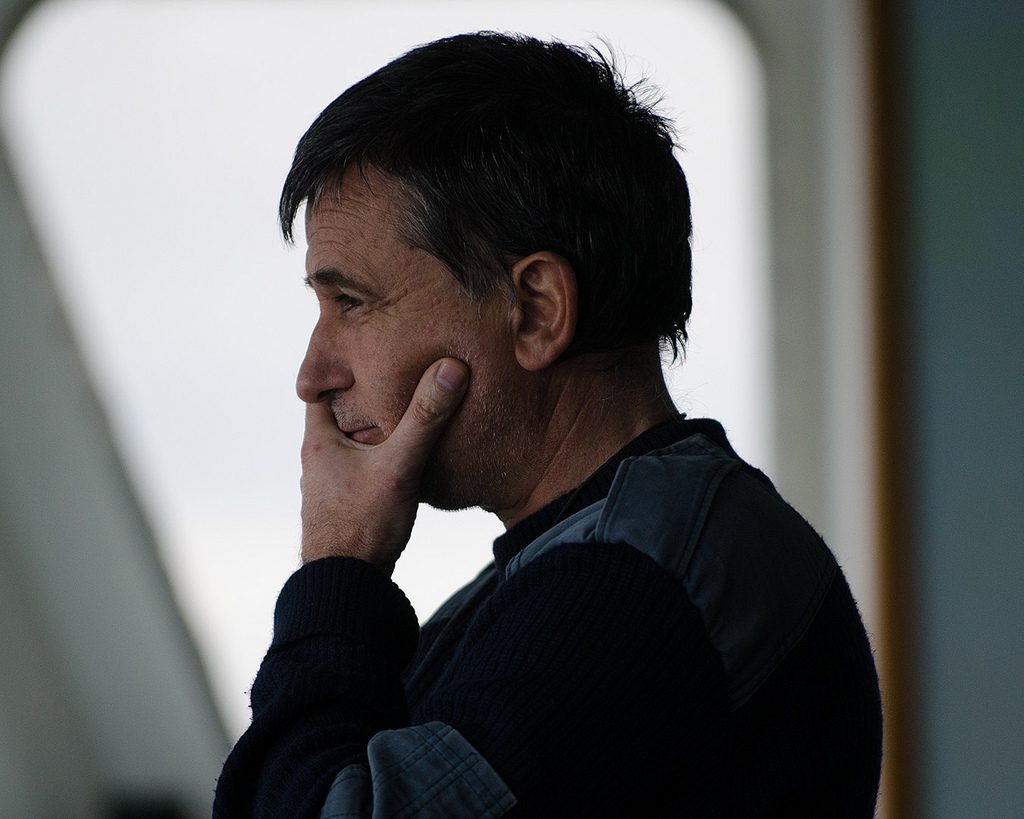Was The World’s ‘Northern-Most Island’ Erased From Charts?
by Kevin Hamilton (University of Hawaii) In 2021, an expedition off the icy northern Greenland coast spotted what appeared to be a previously uncharted island. It was small and gravelly,...


to read the story behind the photo)
By Jaquelyn Burton (Coeval, Inc.) A person who has been awake for 17 hours faces the same risk of a crash as a person who has a BAC reading of 0.05 g/100ml and those who are awake for 24 hours will have a driving performance similar to a person who has a BAC of 0.1 g/100ml. – Adelaide Centre for Sleep Research
If being tired is equivalent to being drunk – why does shipping culture equate working hard with not resting?


With all of the studies that have been done on fatigue in the past 80 years, it would make sense to have a consensus about how much rest is necessary to avoid it being a contributory factor in accidents. The only result that is seen time and time again is that fatigue can be catastrophic.
“More recent research has revealed sleep loss-induced neurobehavioral effects, which often go unrecognized by the affected individuals. The neurobehavioral impact extends from simple measures of cognition (i.e., attention and reaction time) to far more complex errors in judgment and decision making, such as medical errors,” – Harvey R Colten and Bruce M Altevogt. Institute of Medicine (US) Committee on Sleep Medicine and Research.
“The prevailing view until the 1990s was that people adapted to chronic sleep loss without adverse cognitive effects (Dinges et al., 2005)”
Because of the perception that people could adapt to chronic sleep loss it was standard practice in the maritime world to work on schedules that were and in some cases still are sleep depriving. During the period that this view was dominant was also the same time that the minimum manning requirements were put into place under the assumption that those minimum levels of crew members would be able to operate the vessel safely. What wasn’t accounted for was the fact that fatigue would be so critical to the safety of the vessel.
The errors in judgment and decision making have been sighted as a contributing and a primary factor in many maritime incidents and accidents. More problematic than fatigue itself is the culture that Mariners have built around fatigue being a badge of courage.
It has become so apparent a part of the maritime culture that a conference report in the International Journal of Environmental Research and Public Health said: “Most commonly, seafarers are willing to work while highly fatigued because it is seen as “professional” to do so. The widely held belief that fatigue “comes with the job”, whilst not particular to the maritime industry is certainly pervasive within it, making it difficult for seafarers to recognize fatigue as a problem and to take appropriate action. This “forces” crew into the poor compliance trap as they feel responsible to manage their own shipboard fatigue, making current fatigue management approaches ineffective. ” – Fatigue Risk Management: A Maritime Framework, Michelle Rita Grech
Many mariners were expecting and in some cases still are expecting to be paid 4 or 5 hours of overtime each day, resulting in them working 12 or 13 hours in a 24 hour period. They want to maximize their income when they can. Due to the Work-rest hour restrictions they can not work beyond 72 hours in any seven day period. This culture of more work is “professional” is a direct result of pay being based on overtime and not included in a lump sum monthly rate.
There has been an effort made by the ILO and the IMO to combat these practices in the name of maritime safety that has resulted from the most recent sleep research.
Unfortunately, because of the maritime traditional watch systems and crewing practices that resulted from the previous operating schedules sleep deprivation and fatigue are still problematic, even with the STCW and MLC 2006 Regulations on work rest that are now in force.
There are vessels that face detention and fines due to MLC violations, and many other ships calming exceptions. Some ships still work on a six hours on, six hours off watch rotation. A schedule that is still allowed in the STCW and MLC rules!
“Performance deficits in individuals who slept 6 hours or less per night were similar to those observed in individuals after two nights of total sleep deprivation. Most striking was that study subjects remained largely unaware of their performance deficits, as measured by subjective sleepiness ratings.” – Harvey R Colten and Bruce M Altevogt. Institute of Medicine (US) Committee on Sleep Medicine and Research.
The problem with the MLC rules, beyond that they can be complex to calculate and schedule by hand, is that they restrict hours in any 24 hour period and allow no more than two rest periods in any 24 hour period. Resulting in a violation of the rules to break a six on, six off watch without adding an additional watch stander to the watch schedule. Even the traditional watch schedule of 4 hours on 8 hours off has been shown to diminish performance over time. Eight hours off of watch does not equate to eight hours of sleep – the mariner still has to shower, eat, and wake up again in that 8 hour period, in one study showed the average amount of sleep for the watch standers to be 6.6 hours.
“ …highly fatigued workers were 70 percent more likely to be involved in accidents than were workers reporting low fatigue levels…” – Harvey R Colten and Bruce M Altevogt. Institute of Medicine (US) Committee on Sleep Medicine and Research.
As automation is increasing, many operators are reducing their manning levels to their minimums to cut down operating costs. This is only exasperating the levels of fatigue onboard their vessels. Some ships are now being detained at port-state controls for having falsified their work-rest logs.
The solution is to raise manning – as the airlines had to. Minimum manning should be calculated to ensure that the vessels can operate entering ports, sailing and completing cargo operations without having any crew members – including the captain going into work-rest hour violation. The airlines do this by having two pilots and are safer for it. The only way to avoid fatigue is to spread the workload. How much longer will we continue to let fatigue be a factor, risking the safety of crews, vessels and cargo? The watches need to be stood, alarms must be answered, judgment calls must be made. Fatigue can be a matter of life or death – don’t let it be yours.
Find out more about us at http://Coeval.us training for the #modernmariner.
Join the gCaptain Club for curated content, insider opinions, and vibrant community discussions.


Join the 105,925 members that receive our newsletter.
Have a news tip? Let us know.
Access exclusive insights, engage in vibrant discussions, and gain perspectives from our CEO.
Sign Up




Maritime and offshore news trusted by our 105,925 members delivered daily straight to your inbox.



Essential news coupled with the finest maritime content sourced from across the globe.
Sign Up